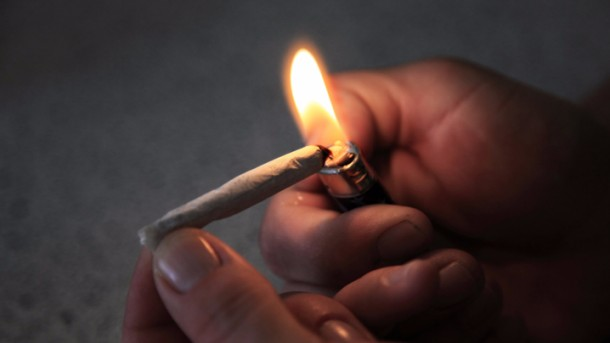Last month’s United Nations General Assembly revealed a stark division along New Zealand party lines. Prime Minister Jacinda Ardern refused to sign the US-led initiative to reduce the consumption and production of drugs. Ardern cited the incumbent Government’s intention to adopt an approach to drug policy that treats it as a health issue. The National Party’s objection to this decision, as well as their legislative efforts to employ a more punitive approach to the pressing issue of synthetic cannabis, reveal that the following few years will determine this country’s position in the international war against drugs.
New Zealand’s Synthetic Cannabis Crisis
Within New Zealand’s public discourse on drug consumption there are two opposing approaches. On the one hand, increasing criminal penalties for supplying and purchasing psychoactive substances, and on the other, addressing the underlying factors that lead to heavy demand for these substances. This division has been highlighted by efforts to combat synthetic cannabis consumption – one of New Zealand’s most harmful drugs [1]. Synthetic cannabinoids, such as K2 or Spice, are unnatural substances that are produced in large quantities and combined with dry vegetation [2]. They provide consumers with experiences that are comparable to marijuana, but with unpredictable and often dangerous side effects, including vomiting, psychosis, anxiety, and paranoia [3].

Synthetic products appeared on the market to substitute the demand for illegal, and comparatively natural, substances such as cannabis [4]. However, as public outcry grew, the Fifth National Government introduced the Psychoactive Substances Act 2013, overseen by the then-Associate Minister of Health Peter Dunne [5]. This piece of legislation was characterised as a victory for New Zealand’s drug policy, establishing the country as a leading actor in the global effort to combat the undue effects of drug consumption [6]. With the Act, the Government of the day ensured that manufacturers had to prove that their products were low risk before they could be sold [7]. If a manufacturer acted in a manner inconsistent with the criteria of the Act, they would be liable to a term of imprisonment “not exceeding 2 years” [8].
Legislative efforts to combat the devastating impacts of synthetic cannabis seemed to work, and Dunne stated that the government had many of these substances “under control” in 2013 [9]. However, Parliament later undertook actions that Dunne saw as “backtracking” against the progress that had been made, by halting changes in the law, and in effect forcing the market for synthetic drugs underground [10]. The impacts of this have been catastrophic. Over the past year as many as forty-five people have died as result of having consumed synthetic cannabis, a striking figure when compared to the two synthetic cannabis related deaths recorded in the previous five years [11]. In addition, ambulance staff report that nearly 1200 emergency call-outs have been attributed to synthetic products. Ross Bell, the executive director of the New Zealand Drug Foundation, has overtly described the current state of affairs surrounding synthetic drugs as a “public health emergency” [12]. Bell has further stated that the damage that New Zealand has seen as a result of synthetic substances has not been matched overseas [13].
Competing Approaches to New Zealand’s Current Drug Crisis
The punitive approach to drug abuse has taken the form of the Psychoactive Substances (Increasing Penalty for Supply and Distribution) Amendment Bill, introduced by National MP Simeon Brown of Pakuranga [14]. This Bill effectively amends Section 70 of the principal Act by increasing the maximum penalty for suppliers of psychoactive substances from 2 years to 8 years [15]. Brown has been clear in outlining the public policy concerns of his bill, emphasising his intention to provide more adequate penalties to suppliers who are “making money off people’s misery”. He has made clear that he does not intend to punish drug users, but rather those who supply these harmful substances to the black market [16]. Brown further believes that the sharp increase in the maximum penalty will put these suppliers “on notice” [17]. The Bill has received support from those who have experienced tragic first-hand encounters with synthetic drugs; the family of Calum Jones, a 22-year-old Auckland man who passed away due to a synthetic cannabis addiction, have staunchly supported this Bill, and presented a petition for over 1200 signatures to Brown in support of his efforts [18]. The Bill passed its First Reading on March 21st, with the National and New Zealand First parties supporting the Bill, and the Labour, Green and Act parties opposing it; it is currently before the Select Committee [19].

This Member’s Bill has been met with staunch opposition. Former Prime Minister Helen Clark, a member of the Global Commission on Drug Policy, has thoroughly renounced the Bill and its underlying approach to tackling drug usage, charging that this piece of legislation is “heading in the war on drugs direction which isn’t going to work” [20]. She has further stated the necessity of ensuring that global experts on the issue, who have observed and understood what she sees as the devastating consequences of the War on Drugs, speak with the Justice Committee before the Bill reaches its second reading [21]. Clark has broadly called for a new approach to drug policy in New Zealand, citing examples such as Portugal and Switzerland, which have adopted more “enlightened” philosophies, that have effectively reduced death rates without having to expand prison populations [22]. As far as incumbent opposition to the Bill is concerned, justice spokesperson for the Green Party Golriz Ghahraman has stated that it will increase New Zealand’s already-expansive prison population, and the Labour and Green parties broadly believe that the Bill will not amend the societal ills that it wishes to solve [23].
Peter Dunne, who headed the principal piece of legislation, has discredited Brown’s amendment as “naive nonsense”, branding it a politically expedient action for Brown—being the MP for one of the National Party’s greatest electoral strongholds—that ultimately forces markets to go further underground [24]. Dunne has also alluded to the damaging impacts on public discourse surrounding drug policy, as a heightened degree of emphasis on penalties for suppliers, as opposed to the necessity of testing drugs for their level for risk, forces public officials into a game that ultimately cannot be won [25]. Bell from the New Zealand Drug Foundation described the decision of National and NZ First as “disappointing” and uttered similar concerns to Dunne, stating that simply increasing sentences won’t solve the issue of drug consumption [26]. Bell has also criticised the efforts that successive governments have undertaken to combat this issue, insisting that it ought to treated as a health issue, rather than viewing this issue through the “old-school” lens of an issue for the criminal justice system [27].
New Zealand’s Disagreements on the Global Drug Debate
The competing punitive and health approaches to the anti-drug crusade in New Zealand were further highlighted on the international stage during the United Nations General Assembly, during which US President Donald Trump promoted the “Global Call to Action on the World Drug Problem” [28]. This documentaims to reduce drug consumption among signatories by addressing factors that raise demand, reducing supply by preventing overseas imports, and broadly promoting cooperation.[29]. Australia, Canada, the UK, and roughly 124 other nations have expressed their intention to partake in this initiative [30]. However, Ardern announced her decision not to join many of New Zealand’s closest allies, stating the Government’s desire to adopt a health-based approach to this issue, rather than a punitive one [31]. Ardern’s decision aligns itself with her previous sentiments on drug policy; she characterised the war on methamphetamine as a failure, due to its widened accessibility in New Zealand, and has insisted that, rather than addressing the supply side of the market for psychoactive drugs, it is far more important to observe, understand, and combat “what drives people’s drug use in the first place” [32].

Opposition Leader Simon Bridges, in contrast, has backed President Trump’s call to action, deeming it an effective plan to enable international cooperation and to further ensure that countries can do more to help their citizens [33]. Bridges described the Prime Minister’s decision to not back this expansion to the drug war as “puzzling” [34]. Bridges has also emphasised his concerns that New Zealand risks alienating itself by not following the decision of its closest global partners and may appear “soft on crime and drug dealers” [35].
The competing factions of New Zealand’s legislature are united in the claim that the consumption of drugs has had negative impacts on individuals and communities, with the synthetic cannabis problem being only the most recent example. However, the question as to whether this ought to be treated as an issue of public health or the criminal justice system has divided Parliamentarians for decades. It may continue to do so.
Bibliography
[3] Ibid.
[4] https://www.nzherald.co.nz/nz/news/article.cfm?c_id=1&objectid=12096609
[6] https://www.nzherald.co.nz/nz/news/article.cfm?c_id=1&objectid=10871750
[7] Ibid.
[10] Ibid.
[12] Ibid.
[13] Ibid.
[14] https://www.nzherald.co.nz/nz/news/article.cfm?c_id=1&objectid=12096609
[15] www.legislation.govt.nz/bill/member/2018/0016/latest/LMS9445.html
[16] https://www.radionz.co.nz/news/national/353154/war-on-drugs-has-failed-helen-clark
[17] https://www.nzherald.co.nz/nz/news/article.cfm?c_id=1&objectid=12096609
[18] https://www.nzherald.co.nz/nz/news/article.cfm?c_id=1&objectid=12017221
[19] https://www.radionz.co.nz/news/national/353154/war-on-drugs-has-failed-helen-clark
[20] Ibid.
[21] Ibid.
[22] Ibid.
[23] https://www.nzherald.co.nz/nz/news/article.cfm?c_id=1&objectid=12017221
[25] Ibid.
[26] https://www.radionz.co.nz/news/national/353154/war-on-drugs-has-failed-helen-clark
[28] https://www.radionz.co.nz/news/political/367139/jacinda-ardern-rejects-trump-s-call-for-war-on-drugs
[29] Ibid.
[30] https://www.nzherald.co.nz/nz/news/article.cfm?c_id=1&objectid=12130634
[31] https://www.radionz.co.nz/news/political/367139/jacinda-ardern-rejects-trump-s-call-for-war-on-drugs
[33] https://www.radionz.co.nz/news/political/367139/jacinda-ardern-rejects-trump-s-call-for-war-on-drugs
[35] https://www.radionz.co.nz/news/political/367139/jacinda-ardern-rejects-trump-s-call-for-war-on-drugs
Photo Credit
https://www.tvnz.co.nz/one-news/new-zealand/we-would-describe-public-health-emergency-nz-has-worlds-worst-synthetic-cannabis-problem
https://www.nzherald.co.nz/nz/news/article.cfm?c_id=1&objectid=12017221
https://www.radionz.co.nz/news/political/367139/jacinda-ardern-rejects-trump-s-call-for-war-on-drugs




